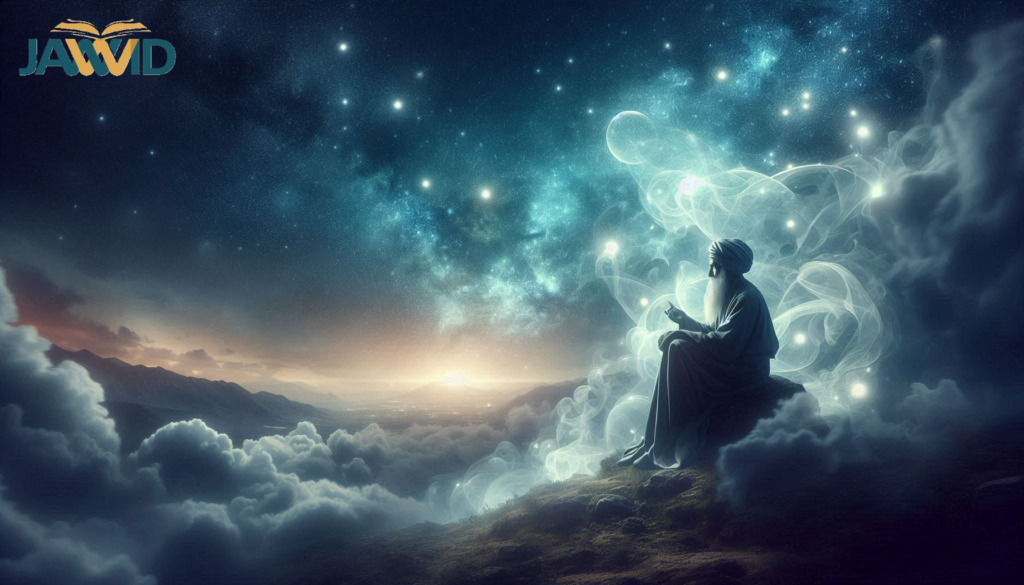In the realm of knowledge, only Allah possesses complete understanding of the unseen. While humans may glean insights into what is relatively hidden through various avenues—be it divine revelation, personal experiences, scientific inquiry, or other enlightening means—none can truly claim mastery over the absolute unseen.
Categories of the Unseen in Islam
The concept of the unseen (al-ghayb) in Islamic teachings is elegantly divided into two distinct categories:
- The Absolute Unseen: This category encompasses knowledge that lies entirely beyond human reach, known exclusively to Allah. It includes profound mysteries such as the exact timing of the Day of Judgment, the occurrence of rainfall, and other significant cosmic events.
- The Relatively Unseen: This type refers to knowledge that remains obscured from some individuals while being accessible to others. For those unaware, these matters are termed “unseen”; however, for those enlightened with knowledge, they are quite visible.
Individuals may uncover insights into the relatively unseen through revelation, personal experiences, scientific discoveries, or other paths that unveil hidden truths. This can range from exploring the ocean’s depths to uncovering the mysteries of the earth and the cosmos above.
You might also like: online quran reading.
As Ibn Taymiyah wisely articulated:
“What some individuals know is unseen (ghayb) for those who lack that knowledge, while it is visible to those who possess it.” (An-Nubuwwat, 2/1022)
Commentary on Al-Jinn 72:26-27
Reflecting on the verses from Surah Al-Jinn, we encounter the powerful message:
“He is the Knower of the unseen, and He does not disclose His knowledge of the unseen to anyone, except whom He has approved of messengers.” [Al-Jinn 72:26-27]. Ibn Kathir provides valuable insights:
“This aligns with the verse where Allah, may He be exalted, declares: ‘And they encompass not a thing of His knowledge except for what He wills.’ [Al-Baqarah 2:255].
Here, Allah affirms His sovereignty over all knowledge, both seen and unseen. His creation can only grasp insights into His divine knowledge to the extent He chooses to reveal. Thus, He designates that His knowledge of the unseen is shared only with those messengers whom He has chosen, encompassing both angelic and human prophets.”* (Tafsir Ibn Kathir, 8/247)
Ibn ‘Ashur elaborates further:
“Allah reveals certain truths to select Messengers as part of the divine message intended for humanity. The unseen matters disclosed to these messengers are crucial components of their mission—related to the Hereafter and the promise of rewards and threats of punishment. These revelations are designed to instill belief and guide action among people. For instance, Allah foretold the defeat and subsequent victory of the Byzantines to the Prophet Muhammad (peace be upon him) to serve as proof of his prophethood.” (At-Tahrir wa’t-Tanwir, 29/248)
Insights Granted to the Righteous
The knowledge of certain unseen matters, which may be bestowed upon some righteous individuals, often occurs through a form of karamah (honor) and may manifest through inspiration or similar experiences.
Shaykh al-Islam noted:
“The miracles and signs displayed by the awliya (close friends of Allah) are extensions of the miracles and signs of the prophets, affirming the truth of their prophethood. Without this connection, these individuals would not hold the status of awliya nor possess miracles (karamat).” (An-Nubuwwat, 2/824)
Some scholars suggest that this knowledge might be communicated to the awliya through angelic means, akin to how messengers convey information regarding the events of the Hereafter. Consequently, the nature of their knowledge differs from that of the messengers themselves.
Understanding Revelation (Wahy)
Concerning the previously referenced verses, it is essential to recognize that they do not specifically address the acquisition of unseen knowledge. Rather, they pertain to the inspiration granted to some awliya, which may have led to confusion regarding the questioner’s intent, as these verses indicate that wahy (revelation) can be given to individuals other than prophets.
To clarify, wahy can be classified into two categories:
- Special Wahy: This refers to the direct revelation received by prophets through angelic messengers.
- General Wahy: This encompasses the inspiration that can occur to some awliya, angels, and other beings through various means such as dreams and intuitive insights.
Shaykh al-Islam explained:
“Not everyone who receives wahy in the general sense (inspiration) is a prophet, as this form of wahy may be extended to others.” (An-Nubuwwat, 2/690)
He also remarked:
“The term wahy can be used broadly to imply inspiration, which may happen to certain individuals.” (Majmu‘at al-Masail, Rashid Rida, 3/96)
Ultimately, Allah’s wisdom encompasses all, and He alone knows the intricacies of the unseen.



